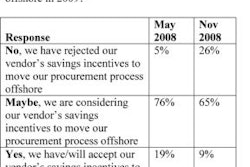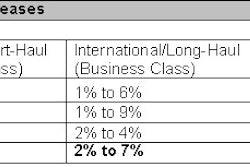As the sole U.S. licensee for Adidas accessories and Body Glove apparel, Agron, Inc. runs a busy warehouse operation. Charged with the design, marketing and distribution of branded clothing and accessories, the company has enjoyed steady and significant growth over the years. It is an industry where retailer requirements — including labeling directives, EDI mandates and penalties for missed or incorrect shipments — threaten to overwhelm many distributors. How does Agron ensure that its business continues to grow and flourish in this competitive marketplace defined by tight margins and increasing regulation? Years ago, Agron made the strategic decision to invest in its technology infrastructure. It's a decision that's been paying dividends ever since.
Changing Retail Landscape
In the 18-plus years the company has been in business, the retail marketplace has changed dramatically. Within the changing retail landscape, manufacturers and distributors like Agron must meet strict labeling, packing, shipping and invoicing protocols. Retailers are placing increasing numbers of requirements on their suppliers.
For example, where previously Agron might ship a large order to a retailer's distribution center, it must now divide the order up, packing and shipping to hundreds of individual stores. One late order may mean hundreds of thousands in lost revenue dollars and chargebacks. As weekly stocking orders arrive from its retail customers, Agron must have adequate stock on hand and be equipped to respond quickly.
To meet the demands, Agron could have hired additional staff to keep up with order entry and shipping operations or invest in the company's accounting and warehouse management technology to streamline and automate many of the tasks. "Ramping up staff to perform order entry just doesn't make sense to us," explains Alan Gomperts, controller at Agron. "We believe in using technology wherever possible and prefer to use our staff for revenue-generating activities."
EDI Delivers Consistent Communication
Electronic data interchange (EDI) was one of the first, and the most important, technology tools in which Agron invested. Research led the company to an integrated enterprise resource planning (ERP) and EDI solution. Now customers' incoming orders are automatically processed, acknowledgements sent, advanced shipping notices generated and invoices delivered with virtually no manual interaction.
A single order from some retailers may be processed into 3,000 individual orders shipping to individual store locations. In the past, processing and shipping such a large order could have taken close to a week. Now Agron is able to pick, pack and ship orders of that size in a single day.
In a typical month, the company ships millions of units. With the threat of large chargebacks for late or incorrect shipments, Agron relies on its EDI technology to ensure it plays by customers' rules. "We consistently receive 'A' ratings from Kohls and JCPenneys," notes Gomperts. "Very few suppliers are able to routinely perform at that level."
Integrated Warehouse Automation
Agron invested in a best-of-breed warehouse management solution (WMS) with robust capabilities and a scalable, flexible architecture. The WMS solution interfaces with Agron's ERP software, ensuring that the two systems remain in perfect sync.
Items added in the accounting application are automatically added in the WMS. Sales orders originating in the accounting software are sent to the WMS for processing. Purchase order details including items on order, quantity and expected delivery dates are passed to the WMS. In return, as deliveries are received in the warehouse, items are scanned and their bin locations recorded. These data are sent to the ERP system. As orders are picked and shipped, this information too is transferred to the ERP system. Finally, should an item be damaged or lost, adjustments are sent to the ERP system to ensure the physical counts between the two systems are always synchronized. A radio frequency network with handheld barcode scanners enables wireless access throughout the warehouse.
The integrated inventory control, warehouse management, EDI and accounting system give Agron the control it needs. The company can efficiently manage its inventory levels, ensuring it has adequate stock on hand to fill customer orders without overstocking. Agron is able to process an enormous order volume quickly and accurately. And its customers receive the goods they ordered on time and with the proper labeling and acknowledgement.
Agron allocates its orders according to predefined business criteria, and it distributes orders to pickers according to optimal staff workloads and picking strategies. Orders are sent to the warehouse electronically. Consolidated picking tickets are sent to the warehouse staff's handheld devices allowing individual pickers to process several orders at a time and to pack products directly into final shipping cartons — all in a single pass through the warehouse. Product labels, shipping labels, packing slips, bills of lading and other documentation are automatically produced, enabling Agron to ship more orders in less time.
Addressing New Challenges
This technology platform has allowed Agron to address the hurdles that inevitably arise in the course of doing business in a dynamic sector like retail. For example, Agron recently secured a new contract to distribute clothing items and found itself facing a new challenge. The color and size matrix necessary to enter clothing was not supported by its ERP application. Agron turned to its business technology advisor, which designed and developed an integrated color and size matrix, which not only speeds data entry tasks but ensures accurate inventory control.
Agron business philosophy of leveraging available technology continues to pay dividends. "As a result of the efficiency our technology investment provided, we have decreased our staff while adding a product line and increasing our sales considerably," says Gomperts.
"Our technology investments play a key role in helping us meet increasing demands," Gomperts adds. "We could not perform at this level without the technology we've implemented. We are able to service our marketplace, meet our retailers' expectations, and remain competitive."
About the Author: Lynn Klein Berman is the founder and president of SWK Technologies Inc., a firm that has specialized in providing supply chain solutions to small and midsize manufacturing and distribution companies since 1989. Prior to starting SWK, she was the CFO of a $45 million distribution company. More information on SWK Technologies is available at www.swktech.com.
Changing Retail Landscape
In the 18-plus years the company has been in business, the retail marketplace has changed dramatically. Within the changing retail landscape, manufacturers and distributors like Agron must meet strict labeling, packing, shipping and invoicing protocols. Retailers are placing increasing numbers of requirements on their suppliers.
For example, where previously Agron might ship a large order to a retailer's distribution center, it must now divide the order up, packing and shipping to hundreds of individual stores. One late order may mean hundreds of thousands in lost revenue dollars and chargebacks. As weekly stocking orders arrive from its retail customers, Agron must have adequate stock on hand and be equipped to respond quickly.
To meet the demands, Agron could have hired additional staff to keep up with order entry and shipping operations or invest in the company's accounting and warehouse management technology to streamline and automate many of the tasks. "Ramping up staff to perform order entry just doesn't make sense to us," explains Alan Gomperts, controller at Agron. "We believe in using technology wherever possible and prefer to use our staff for revenue-generating activities."
EDI Delivers Consistent Communication
Electronic data interchange (EDI) was one of the first, and the most important, technology tools in which Agron invested. Research led the company to an integrated enterprise resource planning (ERP) and EDI solution. Now customers' incoming orders are automatically processed, acknowledgements sent, advanced shipping notices generated and invoices delivered with virtually no manual interaction.
A single order from some retailers may be processed into 3,000 individual orders shipping to individual store locations. In the past, processing and shipping such a large order could have taken close to a week. Now Agron is able to pick, pack and ship orders of that size in a single day.
In a typical month, the company ships millions of units. With the threat of large chargebacks for late or incorrect shipments, Agron relies on its EDI technology to ensure it plays by customers' rules. "We consistently receive 'A' ratings from Kohls and JCPenneys," notes Gomperts. "Very few suppliers are able to routinely perform at that level."
Integrated Warehouse Automation
Agron invested in a best-of-breed warehouse management solution (WMS) with robust capabilities and a scalable, flexible architecture. The WMS solution interfaces with Agron's ERP software, ensuring that the two systems remain in perfect sync.
Items added in the accounting application are automatically added in the WMS. Sales orders originating in the accounting software are sent to the WMS for processing. Purchase order details including items on order, quantity and expected delivery dates are passed to the WMS. In return, as deliveries are received in the warehouse, items are scanned and their bin locations recorded. These data are sent to the ERP system. As orders are picked and shipped, this information too is transferred to the ERP system. Finally, should an item be damaged or lost, adjustments are sent to the ERP system to ensure the physical counts between the two systems are always synchronized. A radio frequency network with handheld barcode scanners enables wireless access throughout the warehouse.
The integrated inventory control, warehouse management, EDI and accounting system give Agron the control it needs. The company can efficiently manage its inventory levels, ensuring it has adequate stock on hand to fill customer orders without overstocking. Agron is able to process an enormous order volume quickly and accurately. And its customers receive the goods they ordered on time and with the proper labeling and acknowledgement.
Agron allocates its orders according to predefined business criteria, and it distributes orders to pickers according to optimal staff workloads and picking strategies. Orders are sent to the warehouse electronically. Consolidated picking tickets are sent to the warehouse staff's handheld devices allowing individual pickers to process several orders at a time and to pack products directly into final shipping cartons — all in a single pass through the warehouse. Product labels, shipping labels, packing slips, bills of lading and other documentation are automatically produced, enabling Agron to ship more orders in less time.
Addressing New Challenges
This technology platform has allowed Agron to address the hurdles that inevitably arise in the course of doing business in a dynamic sector like retail. For example, Agron recently secured a new contract to distribute clothing items and found itself facing a new challenge. The color and size matrix necessary to enter clothing was not supported by its ERP application. Agron turned to its business technology advisor, which designed and developed an integrated color and size matrix, which not only speeds data entry tasks but ensures accurate inventory control.
Agron business philosophy of leveraging available technology continues to pay dividends. "As a result of the efficiency our technology investment provided, we have decreased our staff while adding a product line and increasing our sales considerably," says Gomperts.
"Our technology investments play a key role in helping us meet increasing demands," Gomperts adds. "We could not perform at this level without the technology we've implemented. We are able to service our marketplace, meet our retailers' expectations, and remain competitive."
About the Author: Lynn Klein Berman is the founder and president of SWK Technologies Inc., a firm that has specialized in providing supply chain solutions to small and midsize manufacturing and distribution companies since 1989. Prior to starting SWK, she was the CFO of a $45 million distribution company. More information on SWK Technologies is available at www.swktech.com.












